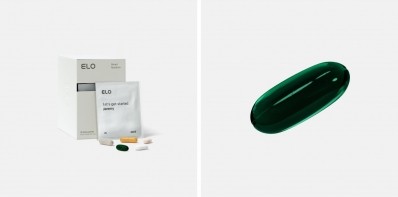ADM talks weight management trends for 2022

With 40% of North American consumers reporting weight gain over the past 12 months due to the lifestyle disruptions associated with the COVID-19 pandemic, the opportunity for science-backed weight management options is clear for all to see.
While the overall weight management/ weight loss category attracts a lot of scrutiny from regulators and skepticism from some in the medical community, ADM is bullish about the category and the science to substantiate the claims
“We are very much into legitimate solutions back by science,” said Dr Janice Rueda, VP, nutrition science business development, ADM. “Weight management isn’t easy, but there are definitely products and solutions to help consumers achieve their goal.”
The global weight loss supplements market, which was valued at nearly $5.7 billion in 2021 and expected to grow with a CAGR of 2.0% by 2026 (Euromonitor International), is traditionally dominated by ingredients that may promote satiety or that increase metabolic rates (thermogenesis), but our deepening understanding of the microbiome is creating opportunities for prebiotics, probiotics, and postbiotics.
ADM’s Bifidobacterium animalis subsp. lactis BPL1 (CECT 8145) strain, for example, is supported by a portfolio of pre-clinical and clinical evidence. The strain is available in both live (BPL1) and heat-treated forms (HT-BPL1), both of which are supported by positive clinical studies.
Among the studies supporting the strains efficacy is a three-month randomized, parallel, double-blind, placebo-controlled trial that was published in 2019 in the International Journal of Obesity. The study, which included 126 obese adults, found that supplementation with either live or heat-killed (postbiotic) BPL1 led to significant reductions in waist circumference (-1.75 cm in the live and -1.84 cm heat-killed groups) and the live bacterium produced statistically significant reductions in BMI versus both its baseline levels and the placebo group.
The live (probiotic) form of BPL1 is used, for example, in Culturelle’s Metabolism + Weight Management product launched in the US and Canada last year.
The company also offers prebiotics in the form of Fibersol, a digestion-resistant maltodextrin commercialized in a joint venture between ADM and Matsutani LLC.
Success with weight management
These ingredients can be used alongside other options, said Dr Rueda, including botanicals such as yerba mate, guarana and green tea extracts, and flavors.
“ADM takes a holistic approach to innovations, understanding what motivates the consumer,” she said. “We know with weight management that the success or failure of these programs is linked to individualization of the programs. Everyone is dealing with different things, and products that address several in one product appeal more.”
Dr Rueda said that programs that extend beyond just losing pounds to also addressing mood and focus, both of which may be impacted by reduced calorie intakes or lower meal frequencies, are one example of a more appealing offering for consumers.
And such products can help with compliance (the short-term progress with a program) and adherence (longer term), she said.
















